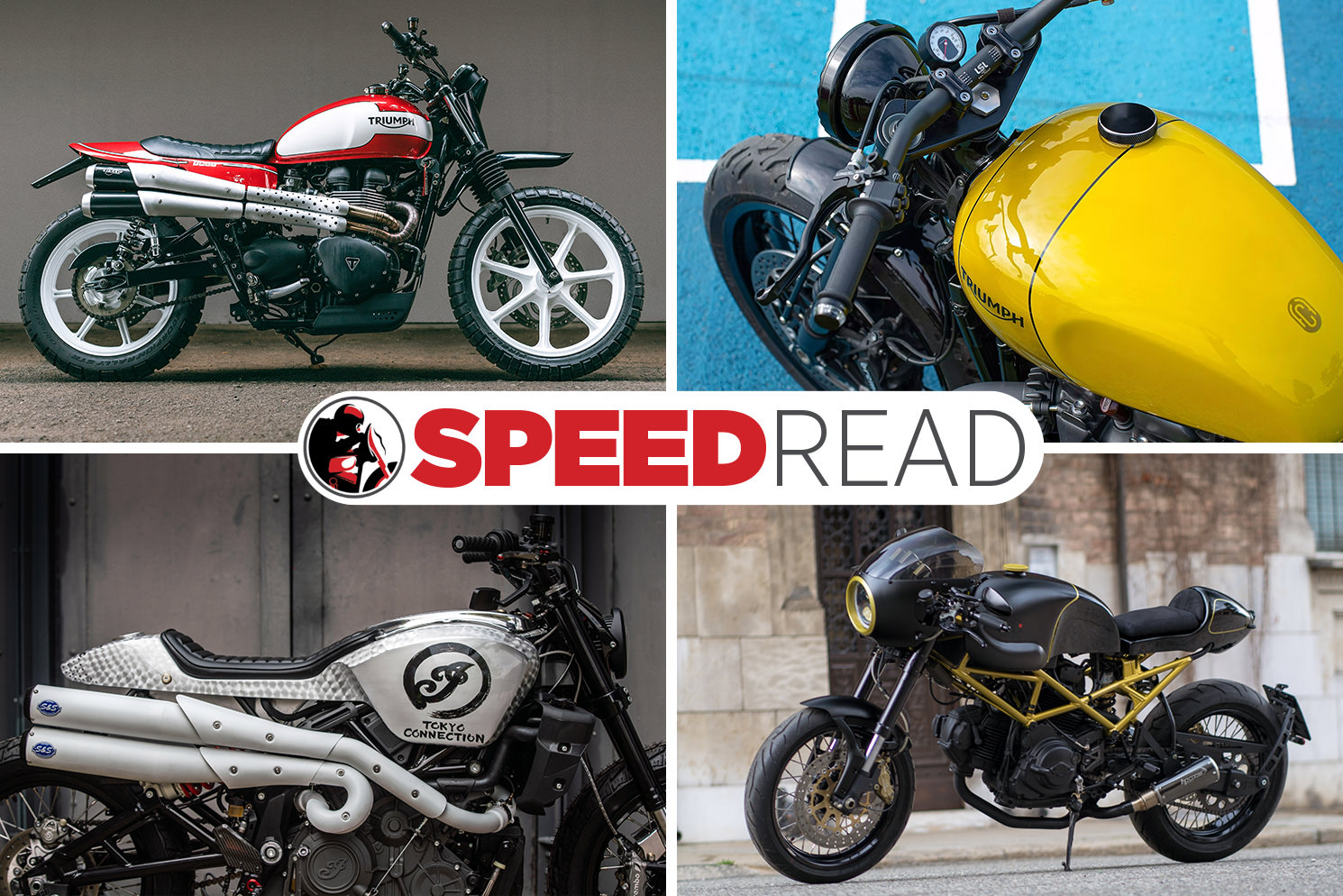
Unveiled this week: a custom Indian FTR, designed by Sideburn and Cheetah. Plus a Triumph Bonneville from Indonesia, a Triumph Bobber from France, and an impossibly slick Ducati Monster 600 café racer from Italy.
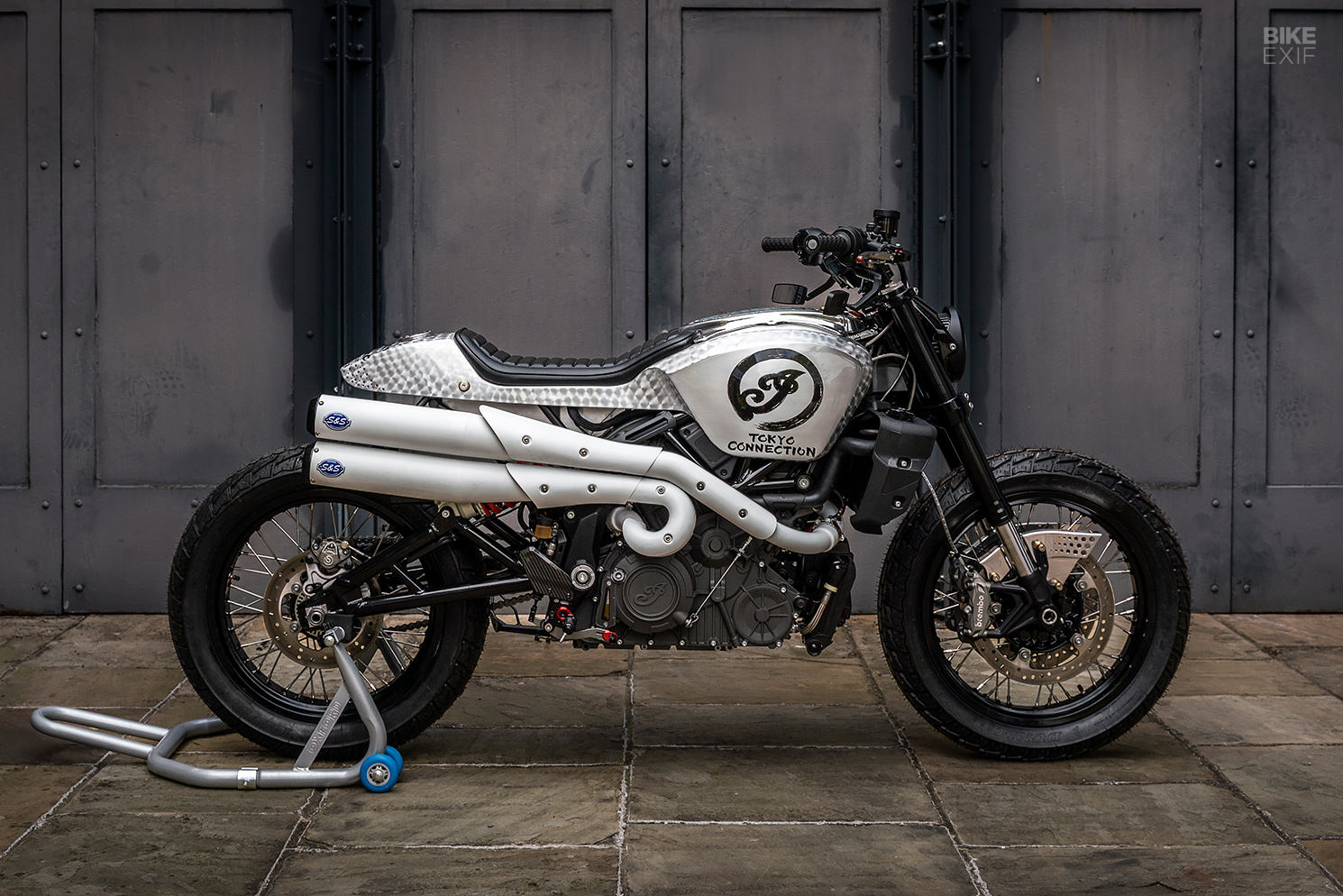
Indian FTR by Sideburn and Cheetah One of the biggest custom bike shows on the calendar, the Bike Shed Show, wraps up today in London. It’s a flurry of visual treats, with builders often rushing to finish their projects in time to wheel them into the show. This shiny Indian FTR broke cover at the Bike Shed this weekend—which is impressive, when you hear how far apart the collaborators that worked on it are.
The brains behind this build are Gary Inman, the UK-based founder of Sideburn magazine, and Toshiyuki ‘Cheetah’ Osawa, one of Japan’s leading custom motorcycle builders. The concept was to build a bike that would play on the FTR’s flat track heritage, while sprinkling in nods to the blossoming grassroots flat track scenes in Japan and the UK. Appropriately dubbed ‘Tokyo Connection,’ it radically reimagines the 1,203 cc roadster’s silhouette, with a one-piece tank and tail unit.
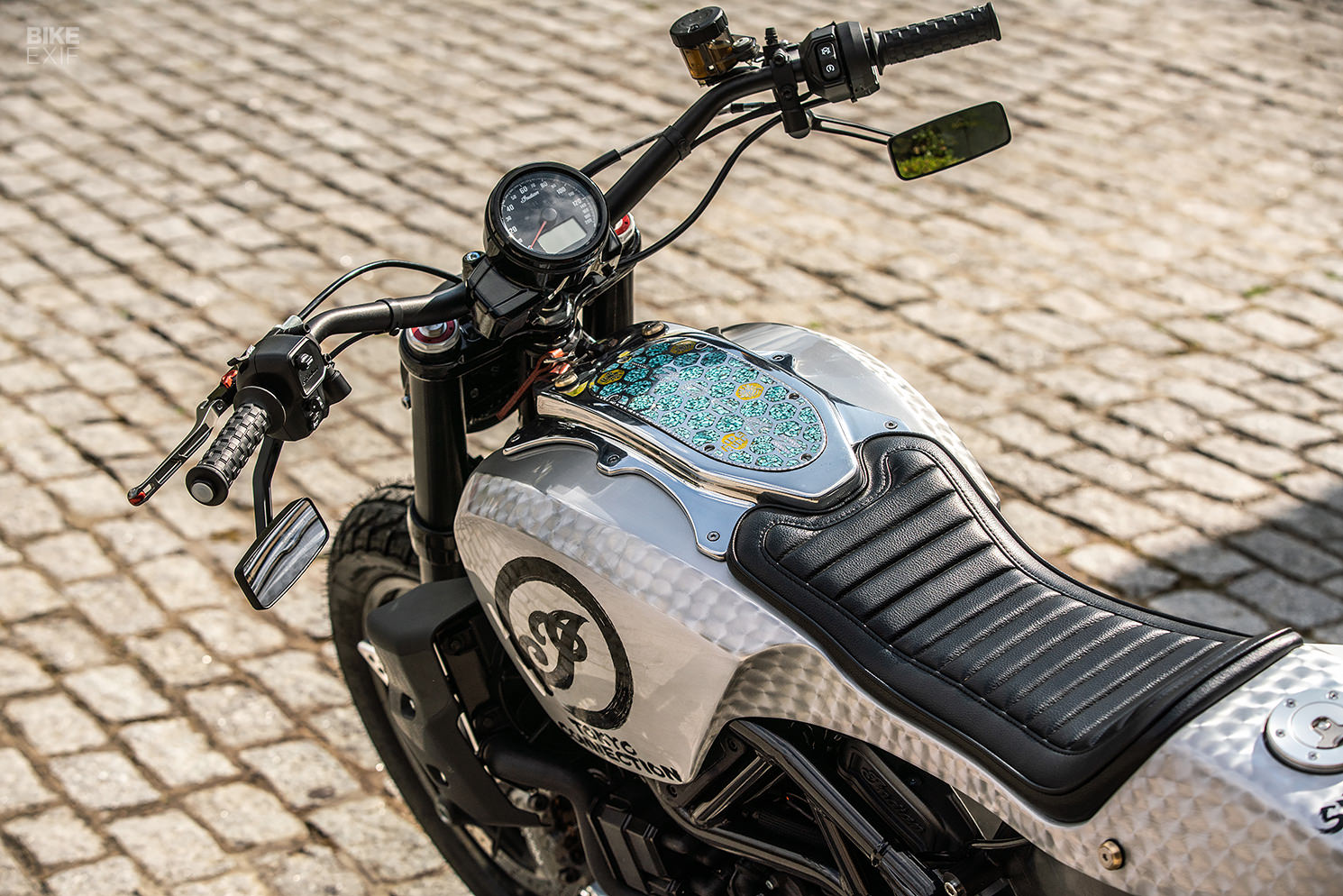
“Cheetah is a complete pro,” Gary tells us. “He explained his workload was huge and the only way he could hit our deadline was to finish the bike very close to the planned Bike Shed Moto show debut by flying over with the bodywork.”
Yes, you read that right. Since Cheetah couldn’t get to everything in time, he put all of his focus into fabricating a monocoque body for the FTR. The bike would also need a new subframe and a custom aluminum fuel cell to go under the seat, so those were outsourced to Toshihiro Watanabe at Garage Ducktail.
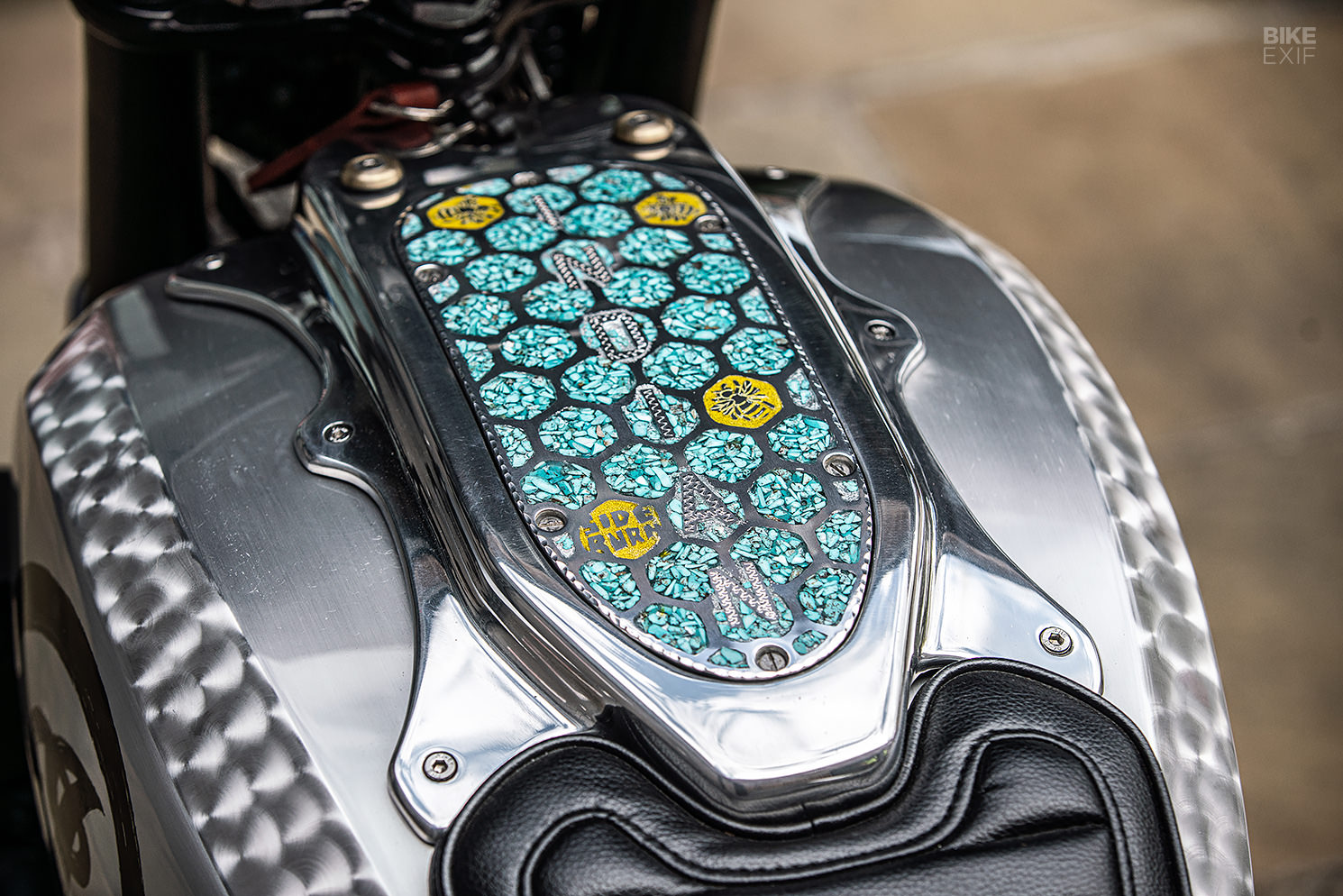
“In terms of design, I deliberately ignored the definition of custom bikes or racing bikes, which call for small petrol tanks,” says Cheetah. “Instead, for the FTR, I created a larger petrol tank cover and crafted a line that narrows from the cover to the tail cowl. A simple, yet beautiful body line that can be appreciated not only from a side silhouette but also from directly behind or at a diagonal angle”
While Cheetah sculpted the FTR’s new body, Toshihiro sent the fuel reservoir and subframe to Gary to fit it in the meantime. Gary also flipped through the Sideburn Rolodex, gathering together bolt-on parts from companies that he’s collaborated with before. On went an S&S Cycle exhaust, along with rear-sets, levers, a radiator cap and an oil tank cap from the Indian Motorcycle x Gilles Tooling collection.
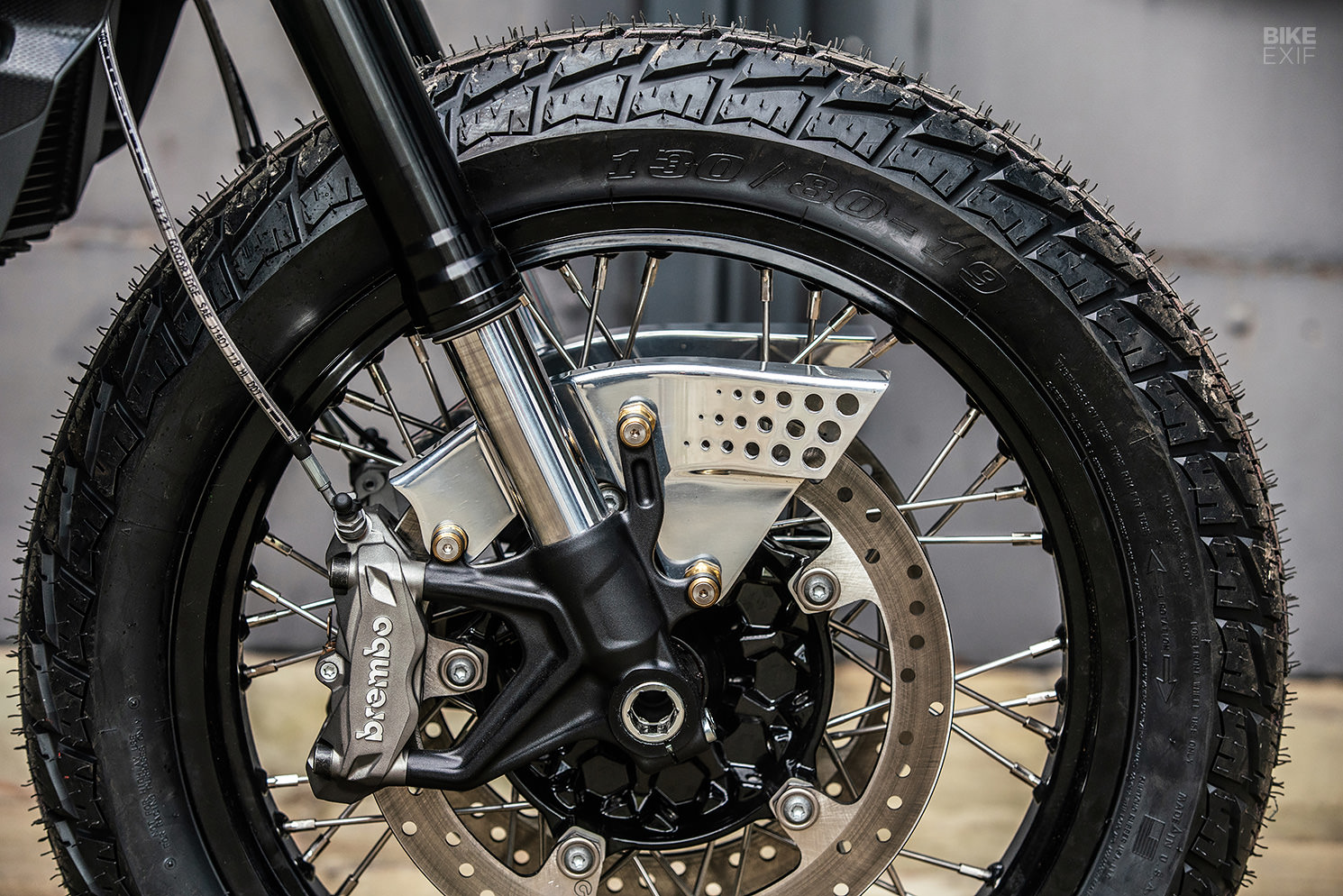
The front wheel was swapped out for a 19” unit from an Indian FTR Rally, and the original rear hub was re-laced to another 19” rim, courtesy of Hagon wheels. The parts spec also includes Dunlop DT4 tires, Neken flat track handlebars and Rizoma turn signals.
With bike nearing completion, Cheetah put the finishing touches on the monocoque body by adding a spun texture to the aluminum. Atelier Tee upholstered the seat, S Paint works handled the paint, and Tomomi ‘Shakin’ Shimizu laid down the lettering.
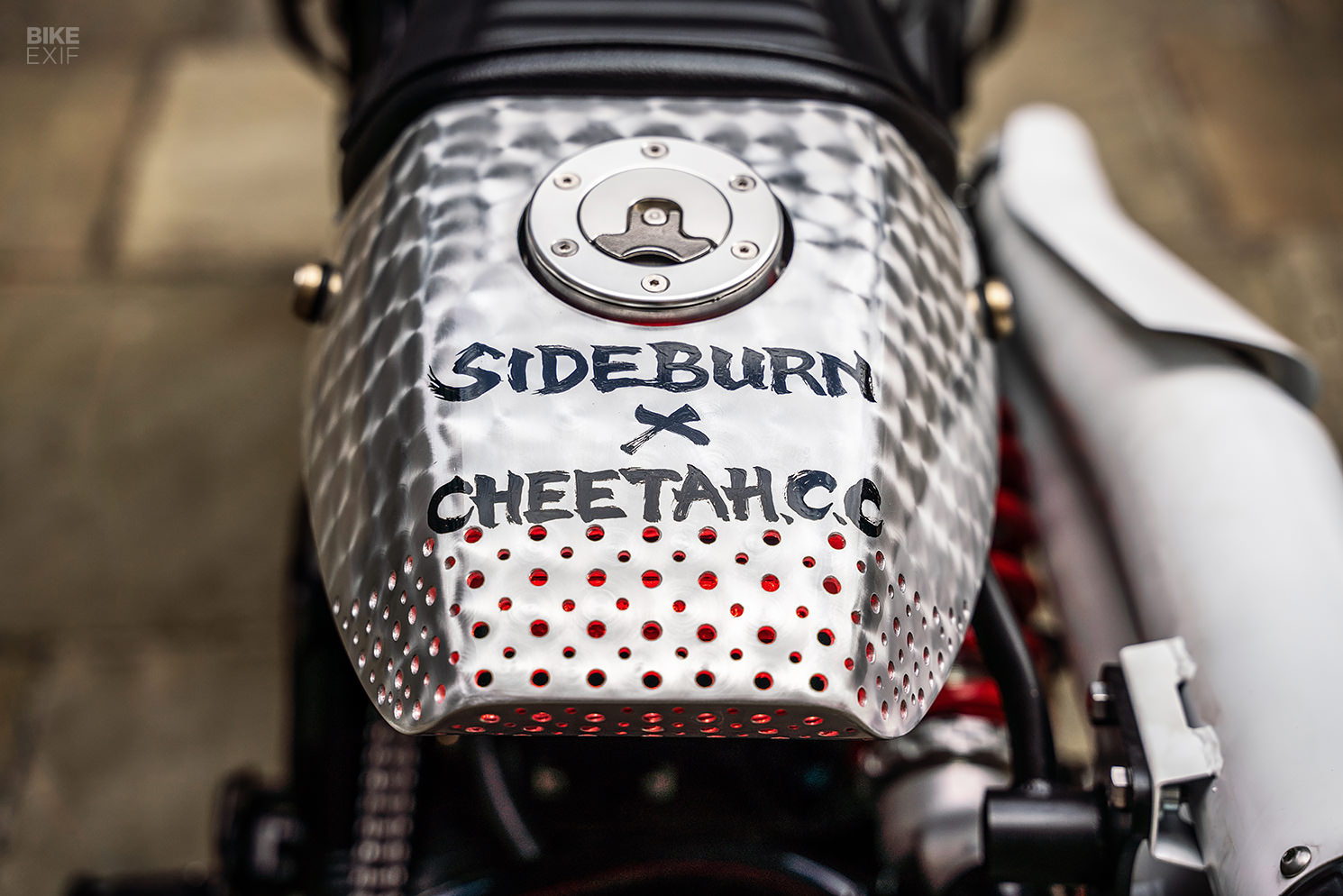
Cheetah flew over to the UK with the final piece, fitted it to the bike, et voilà—one of the stars of this year’s Bike Shed show was complete. [Sideburn | Cheetah | Images by Sam Christmas Photography]
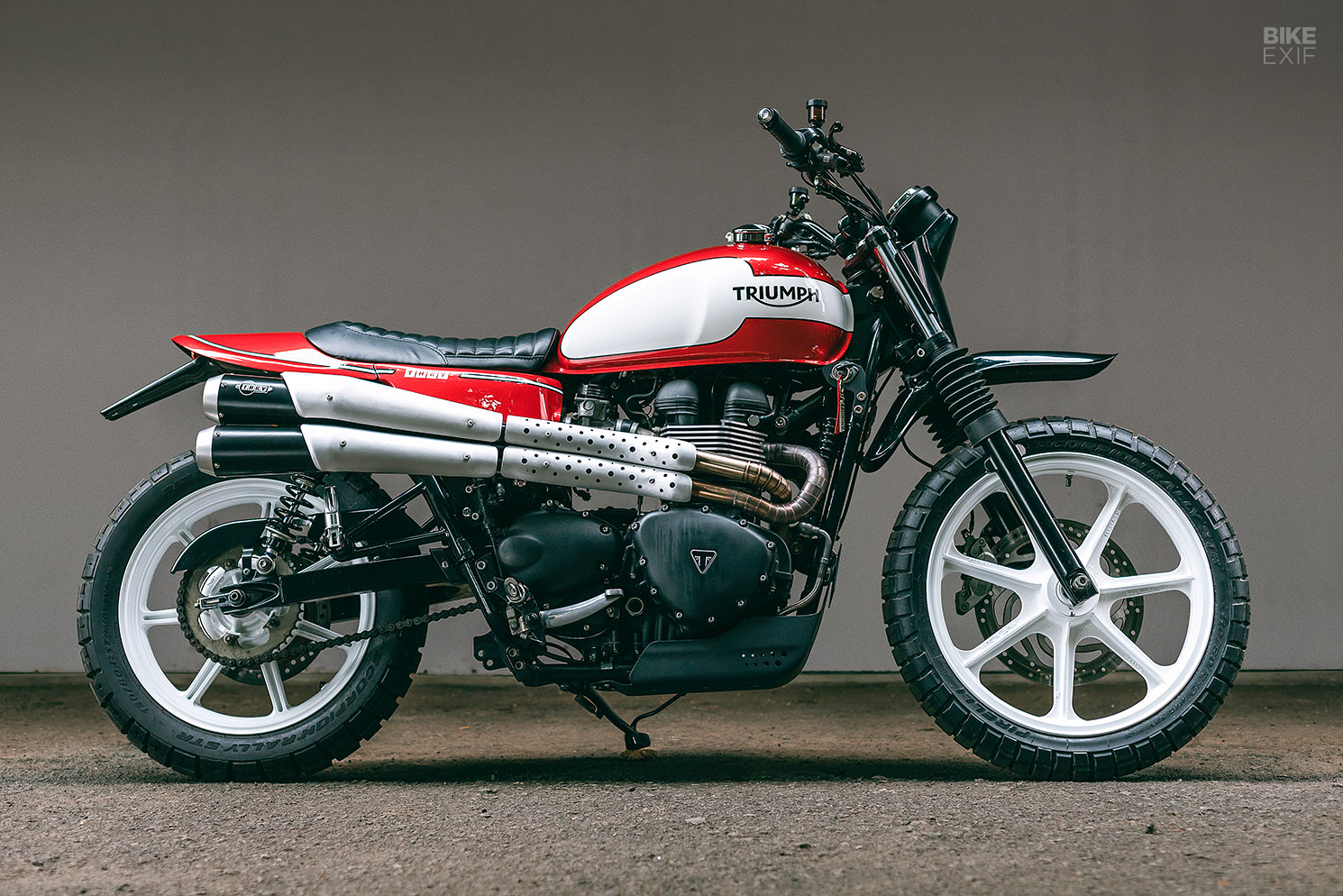
Triumph Bonneville by Thrive Motorcycle It’s been a minute since we’ve heard from Thrive Motorcycle, but the Jakarta-based shop hasn’t been dormant. They’ve just unveiled their latest build—a 2015-model Triumph Bonneville Newchurch with a number of interesting details.
The commission came from a family member of a friend, who wanted to spruce up his Bonneville. Thrive kept some of the Bonneville’s original character, but mixed in a number of touches that cover myriad styles; from street trackers to classic UJMs.
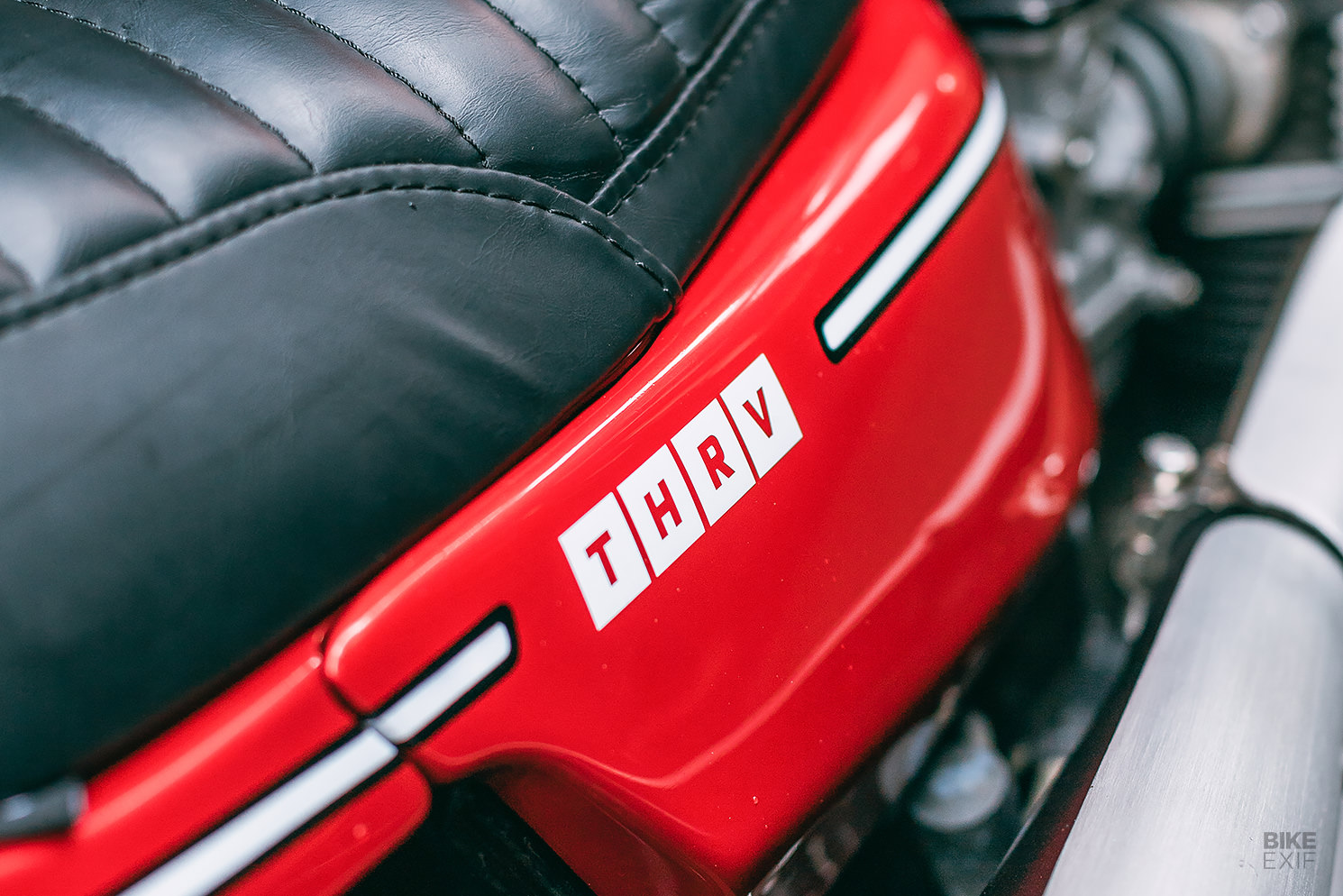
Thrive kept the Bonneville’s fuel tank, but dressed the bike with new front and rear pieces. The headlight nacelle and high-mounted front fender were both hand-shaped from aluminum, following a neo-retro enduro aesthetic. The tiny LED light that pokes out the front only acts as a daytime running light, with a PIAA spot, mounted to the left side of the bike, lending a hand.
Out back is a swooping tail section that gives us strong classic Kawasaki vibes. It’s also made from aluminum, as are the ‘side panels,’ one of which is actually the bike’s new electronics box. A solo seat sits up top, with an LED taillight tucked away under the rear cowl.
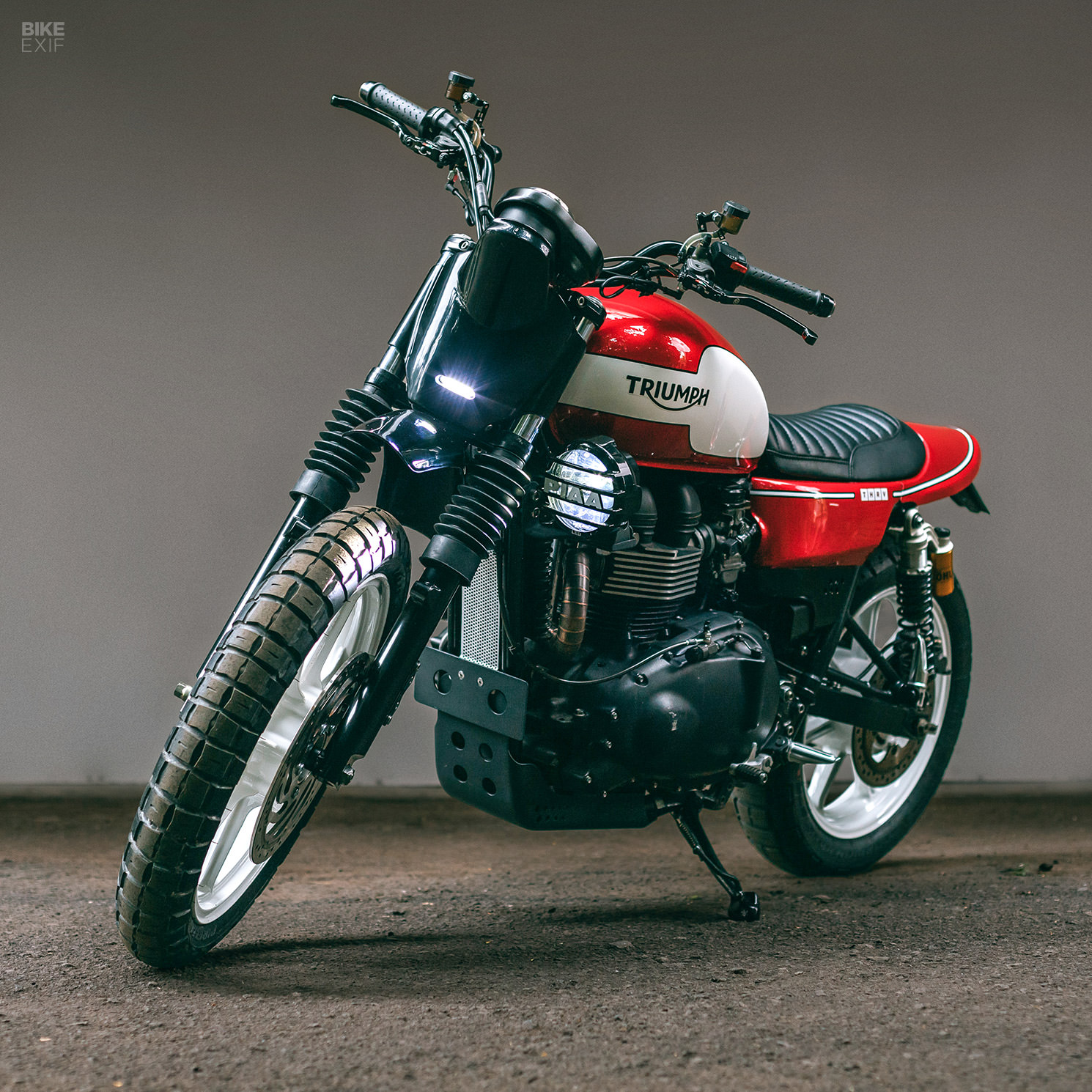
The seven-spoke wheels actually are from a classic Kawasaki. Measuring 19” at both ends, they were adapted to the Triumph via custom spacers, painted white and wrapped in Pirelli Scorpion Rally tires, chosen for their ride-anywhere appeal. Öhlins rear shocks sit sneakily at the back end of the bike too.
The control area features a new bracket for the OEM speedo, and Brembo brake and clutch controls. The foot pegs and turn signals come from Thrive’s own parts catalog, as do the twin mufflers, which are mounted on custom headers. A custom aluminum sump guard adds a little off-road protection.
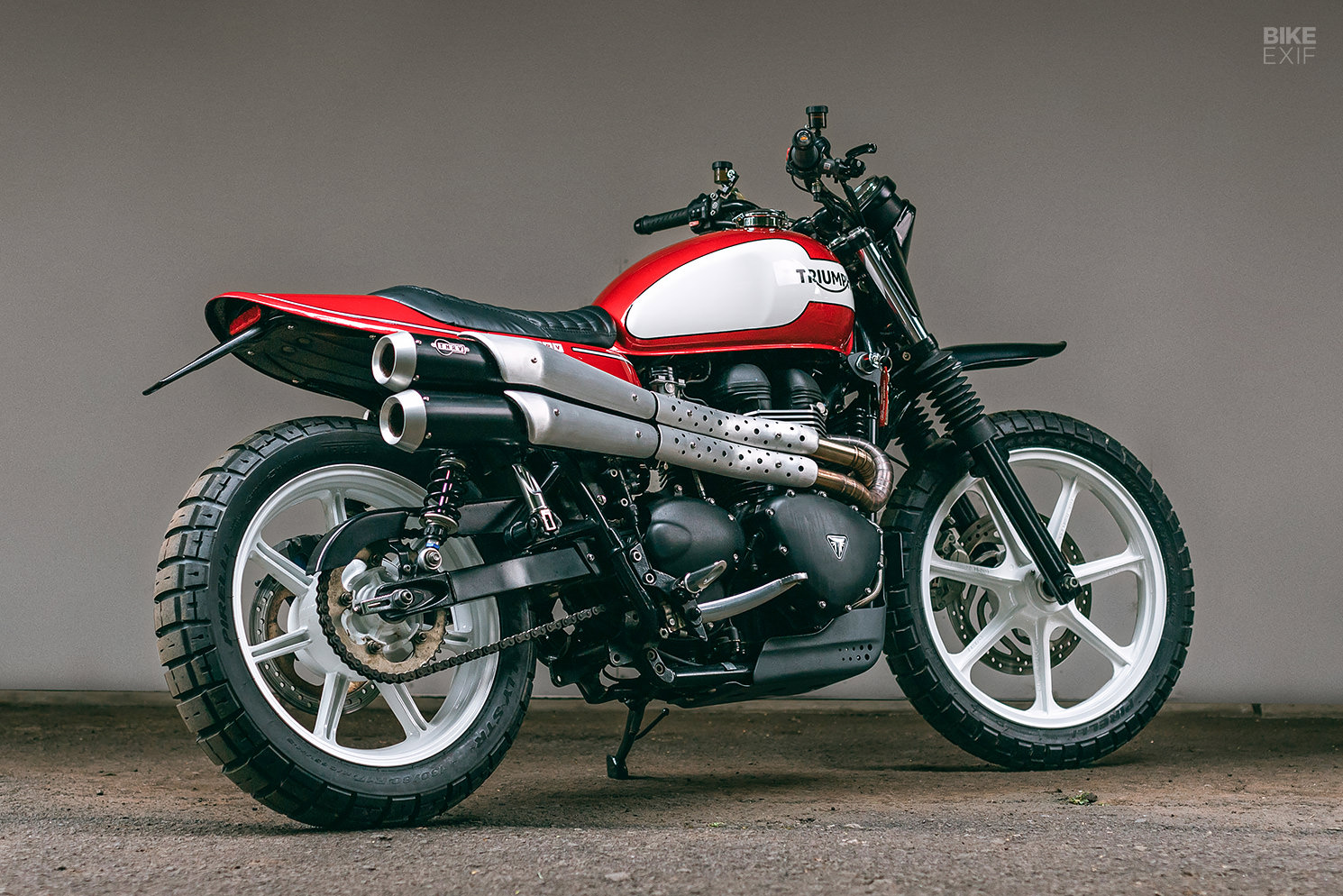
The Bonneville Newchurch is a special edition that came out with a very fetching red and white paint scheme. Not wanting to ruin it, Thrive instead painted the new parts in a matching cherry red scheme with black and white details.
It’s a style that we haven’t seen for the venerable Bonneville before—but then again, we’ve learned to expect the unexpected from Thrive. [Thrive Motorcycle | Images by Iqbal Mughniy]
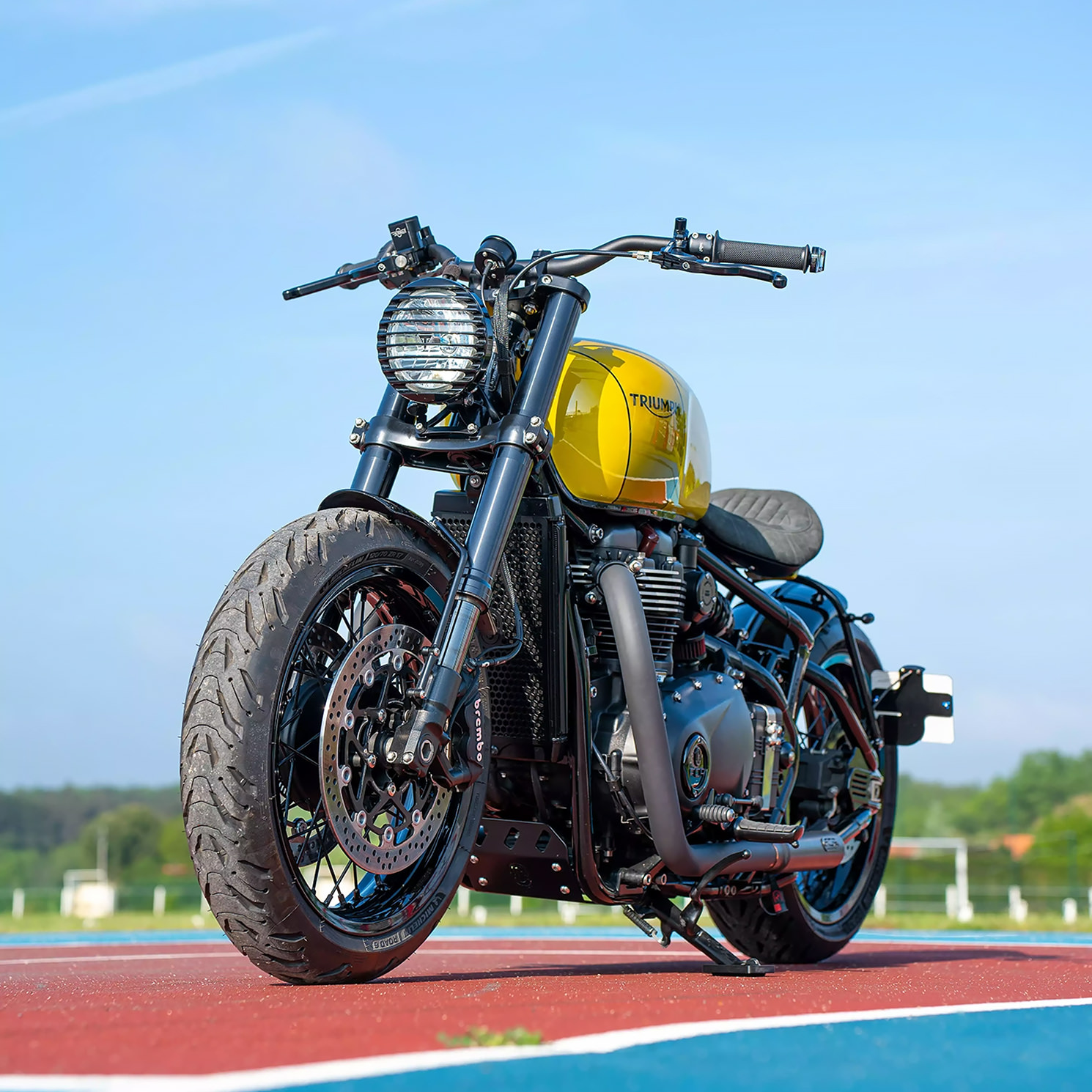
Triumph Bobber by FCR Original One Triumph that’s a little harder to customize than a Bonneville, is the Triumph Bobber. It’s a really good-looking bike out the box, with very little that needs to be removed or tweaked. Your best move is to make a lot of small, clever changes—which is exactly what France’s FCR Original has done here.
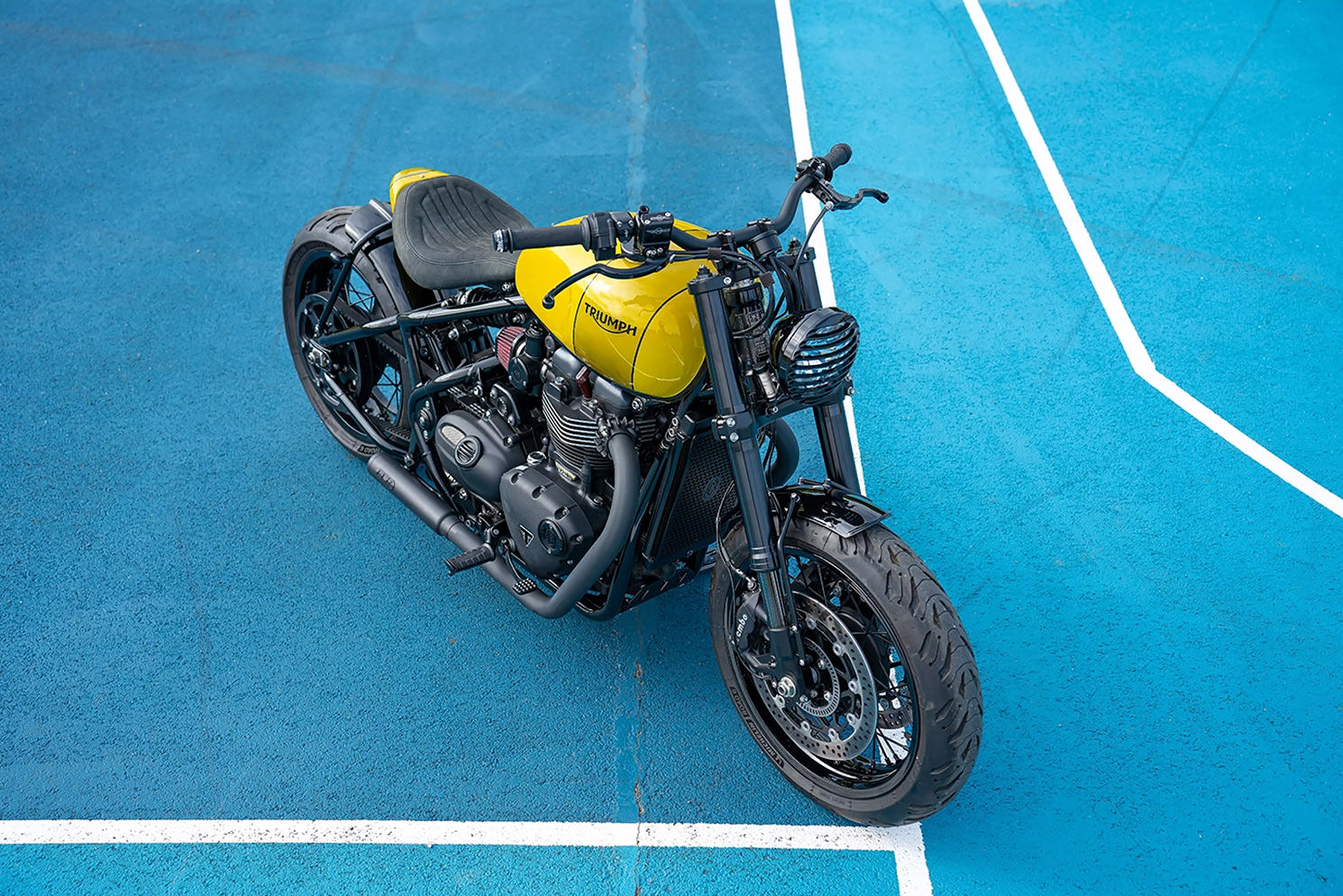
FCR Original is known for manufacturing and stocking a wide range of bolt-on parts for various bikes, so they tapped into their own stash for a lot of this Bobber’s upgrades. It features a pair of blacked-out FCR original exhausts and an FCR gas cap, plus LSL handlebars and risers, Behringer controls and a smattering of Motogadget items. The front fender’s another FCR item, while the stock rear fender’s been bobbed as much as possible.
One obvious change is the seat. FCR reshaped it, upholstered it in stylish nubuck leather, and then modified the seat pan with a custom-made cowl. It’s a small detail that makes a big difference.
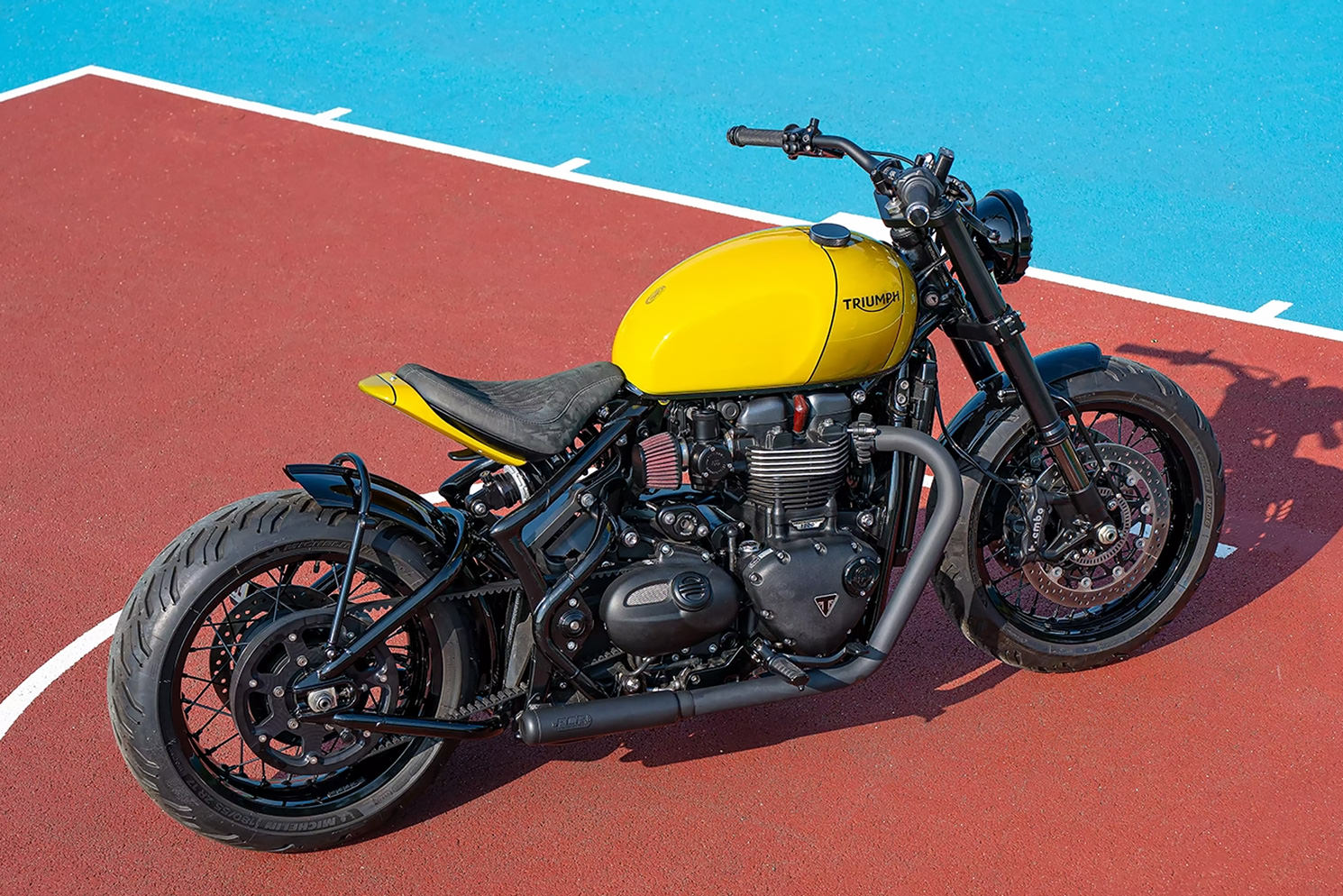
More subtle are FCR’s changes to the rolling chassis. Take another look, and you’ll spot a set of fully adjustable upside-down forks up front, fitted via custom triple clamps. FCR had the uppers anodized black, while the lowers were treated to a black diamond-like coating.
The team also re-laced the stock hubs to new 17” rims, then spooned on Michelin Road 6 tires. An adjustable shock from 2Win sits under the seat, where you’ll also spot a pair of pod filters and a distinct lack of visible wiring. Lower down, the Triumph’s chain has been swapped out for a belt drive.
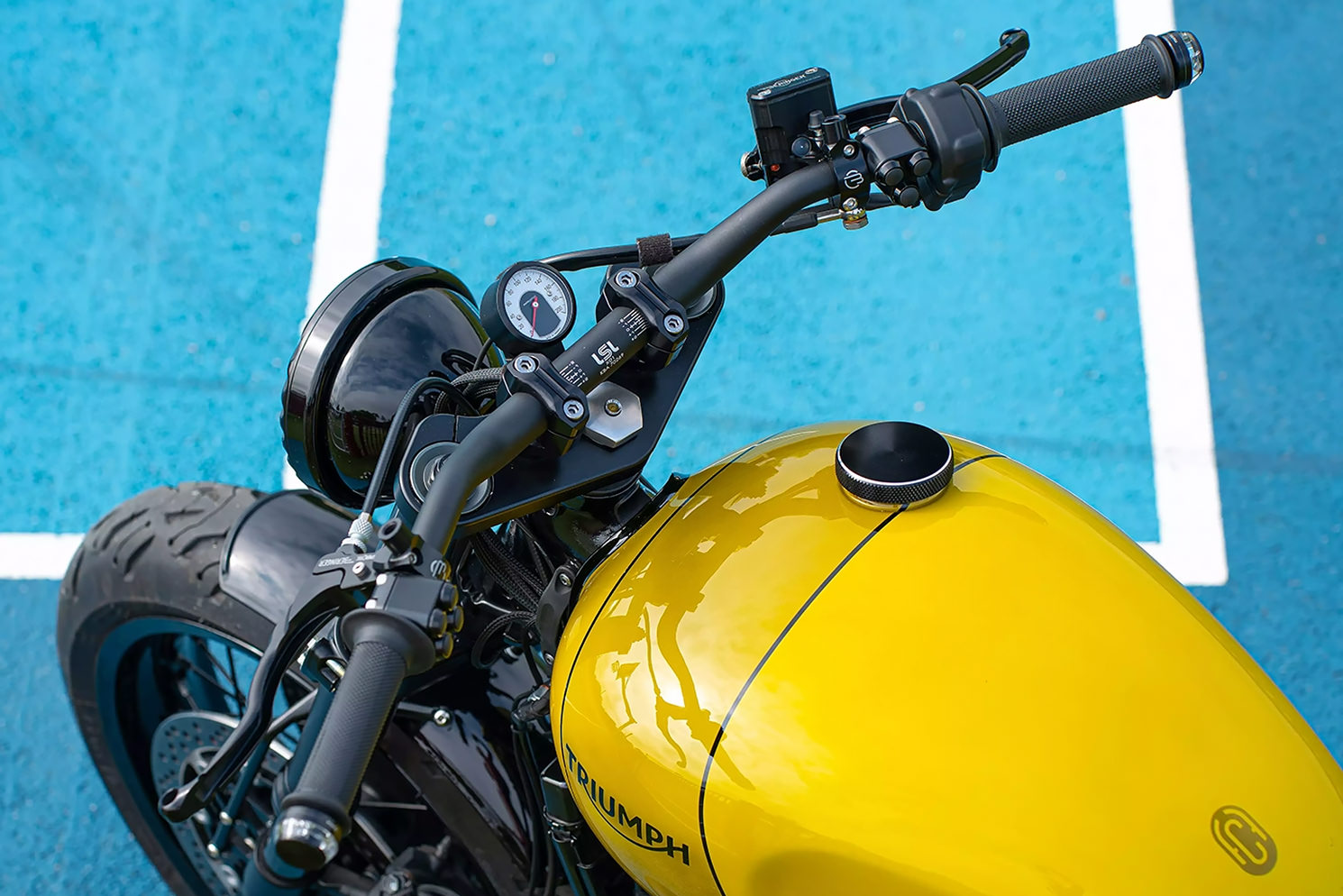
FCR cites streetwear and skate culture as the inspiration behind the build, which probably explains the lemon yellow paint job. It’s a refreshing change from the muted tones we often see on bobbers, and hints at how fun this Triumph must be to ride. [Via]
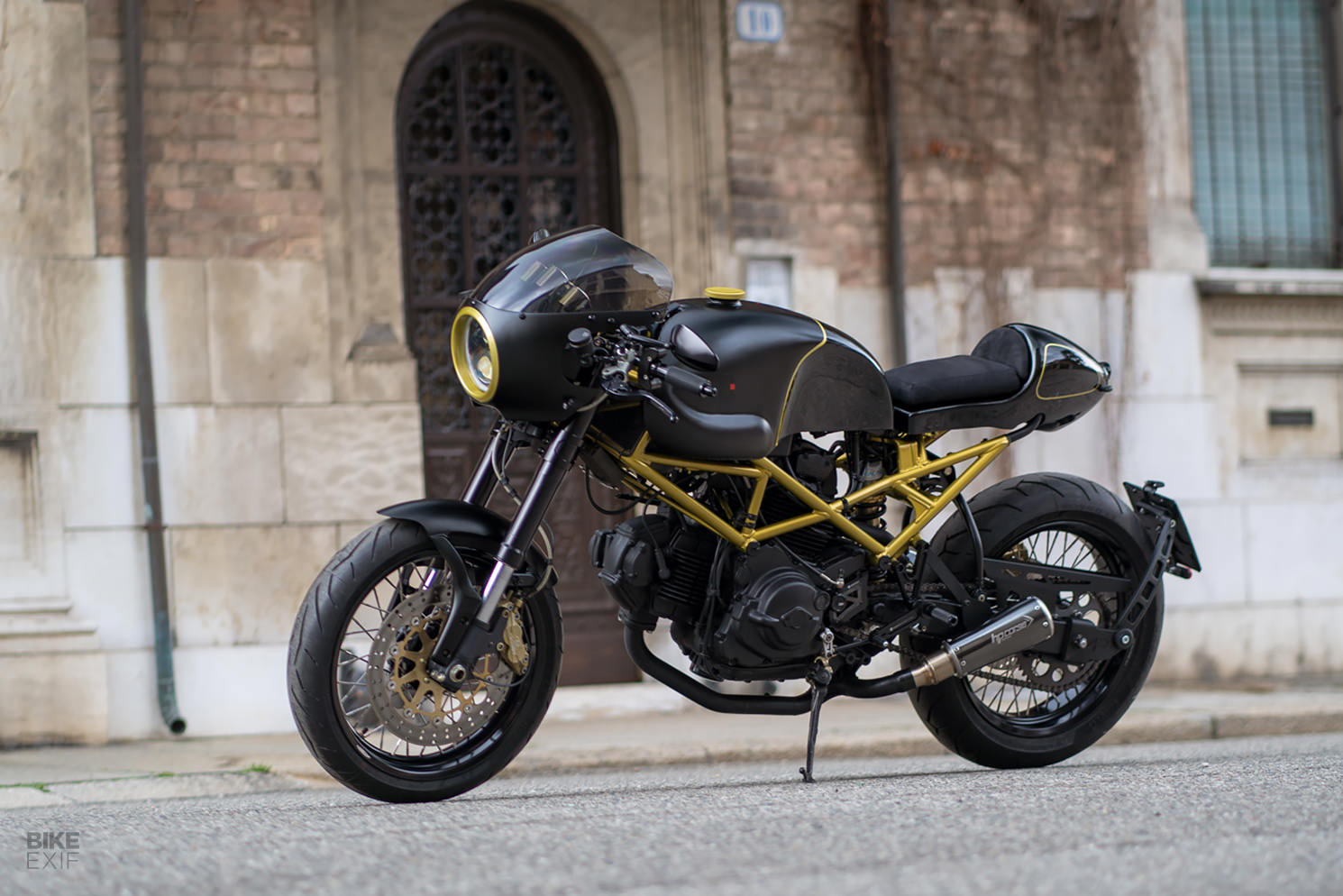
Ducati Monster 600 by Officine GP Design There are certain Ducati Monster models that either notable, desirable or downright iconic. And the Ducati Monster 600 isn’t one of them. Released in the late 90s as a more affordable entry point into Monster ownership, the only Monster 600’s biggest claim to fame is that it was (and still is) cheap.
That said, there’s nothing cheap about this surprisingly stunning custom Monster 600 from Officine GP Design in Turn, Italy. Run by Luca Pozzato, the shop prides itself on building what it refers to as “only for you” bikes. They’ve built over 100 one-off customs to date, and each one testifies to just how sharp Luca’s eye is.
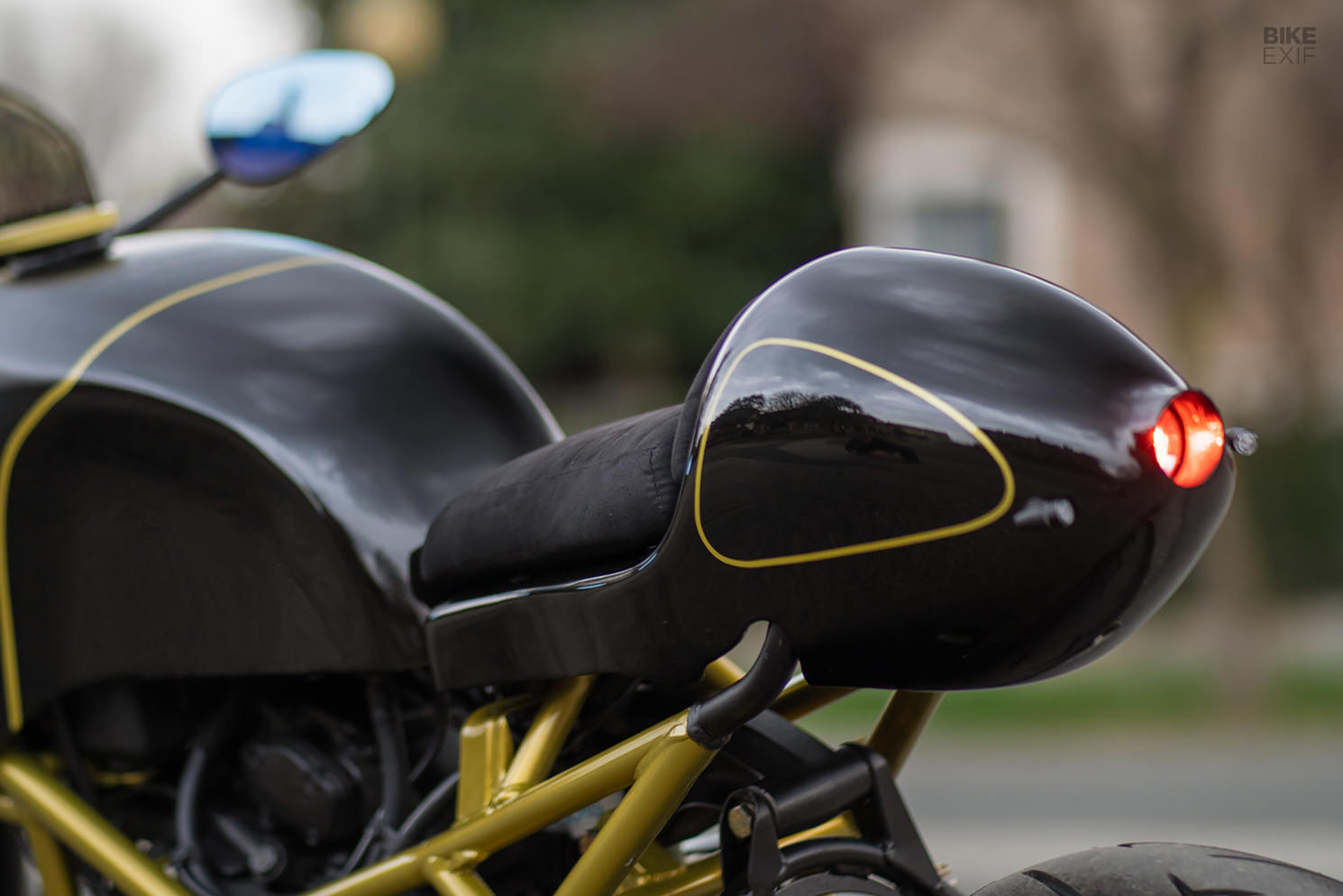
The brief for this Monster came from Roberto Passaro, who runs DucatiSpecial’s social media channels. Roberto wanted “a black motorbike that would catch the eye,” and Luca and his crew delivered.
Nicknamed ‘Lucenera,’ the Monster’s transformation started with a custom fairing, fuel tank and tail section, designed to take it from entry-level naked to classy café racer. LED lights are embedded at both ends, with FG Racing clip-ons sit behind the fairing, fitted with a handful of Rizoma parts.
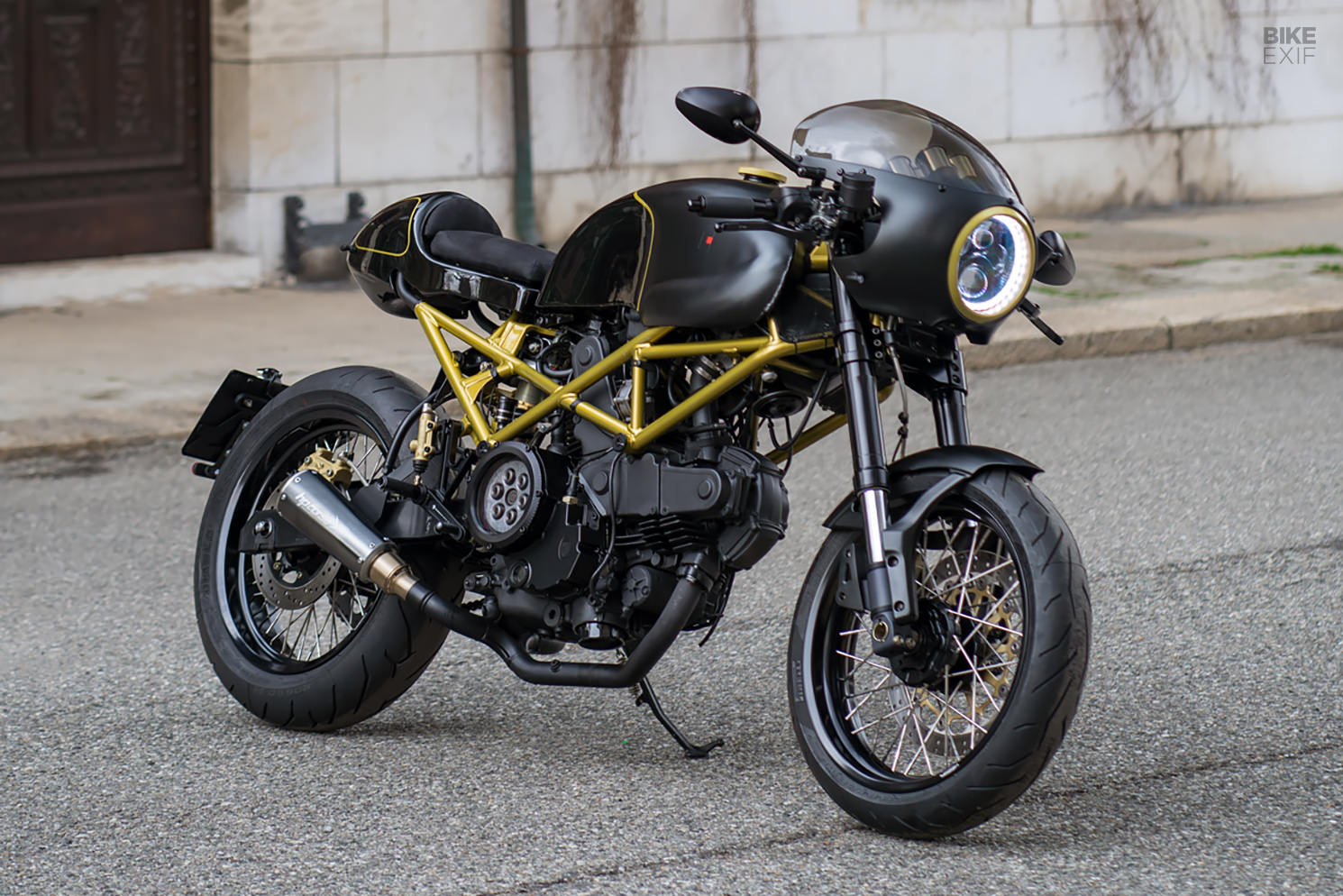
The Monster 600’s push buttons and clutch housing came from STM, the foot pegs and sprocket cover are Ducabike parts, and the clutch actuator and frame caps are from AEM Factory. The Ducati also wears HP Corse mufflers, Jonich wheels and a full set of Pro-Bolt fasteners.
But it’s the little 600’s livery that truly punches above its weight. It’s finished in a mix of gloss and matte black tones, with a sort of olive-gold hue for the frame and pin-striping.
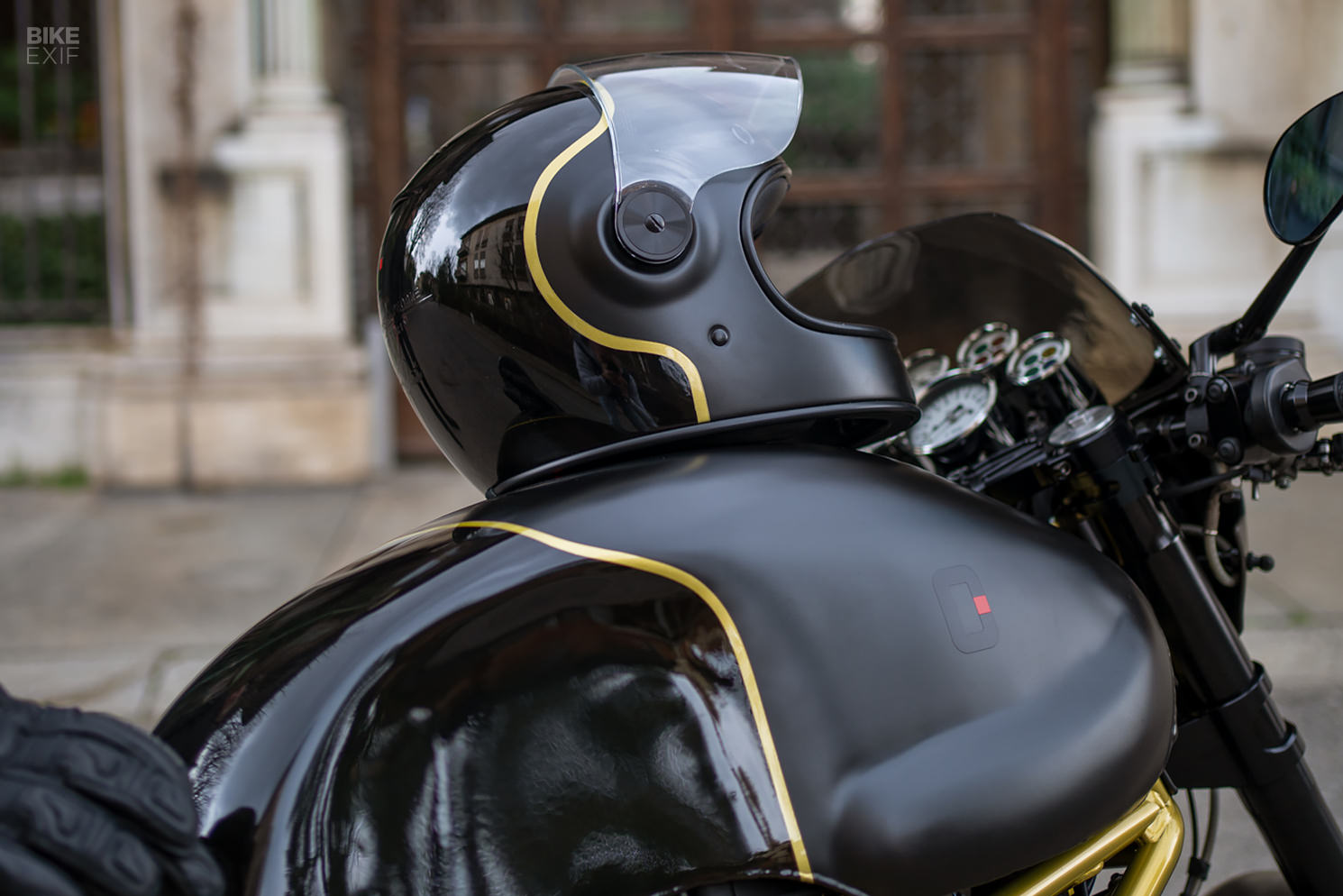
As an added bonus, Officine GP Design even painted Roberto’s helmet to match—and the bike comes with a matching cover, display carpet, riding suit and watch. Bellissima! [Officine GP Design]
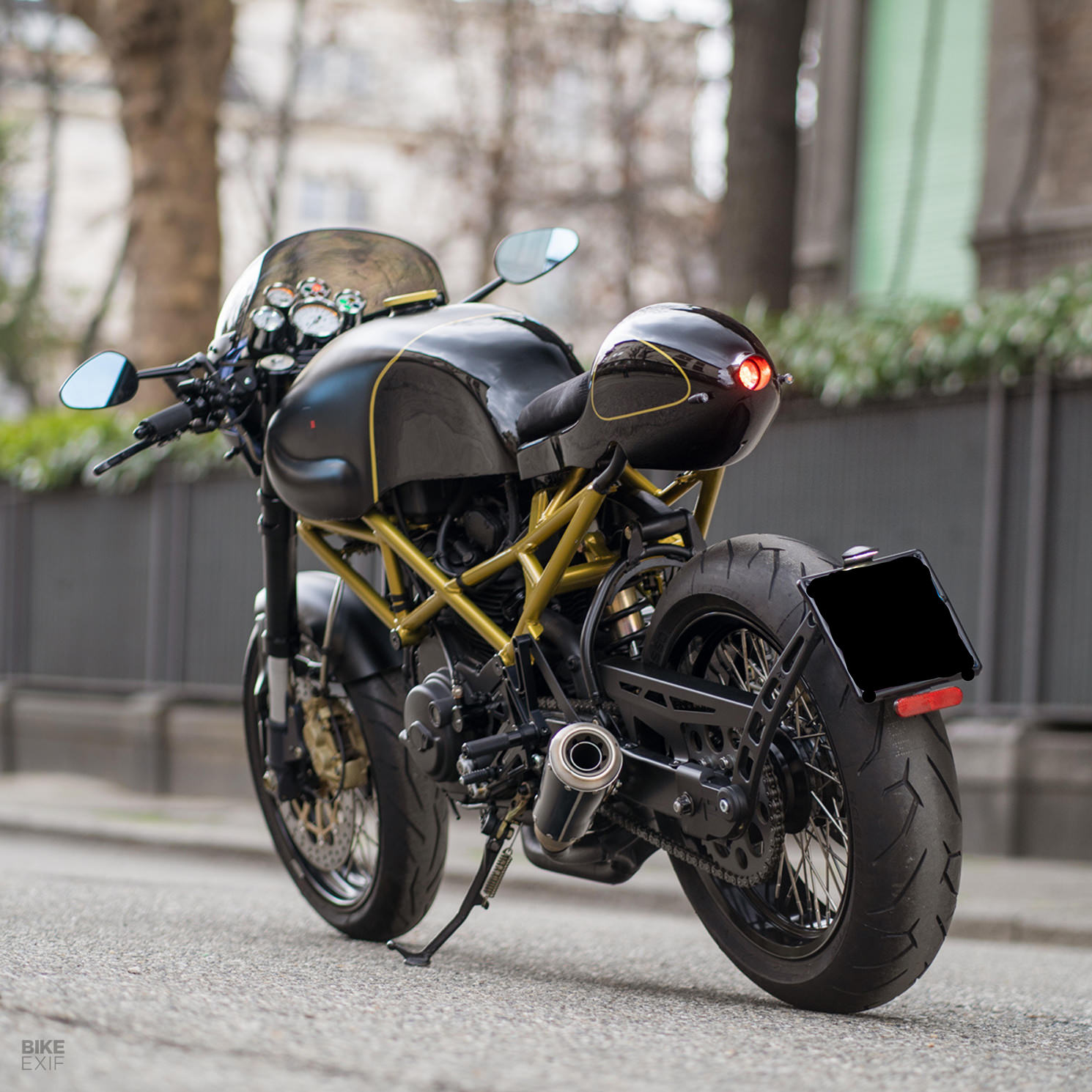
from Bike EXIF https://ift.tt/QLwjrYq
No comments:
Post a Comment